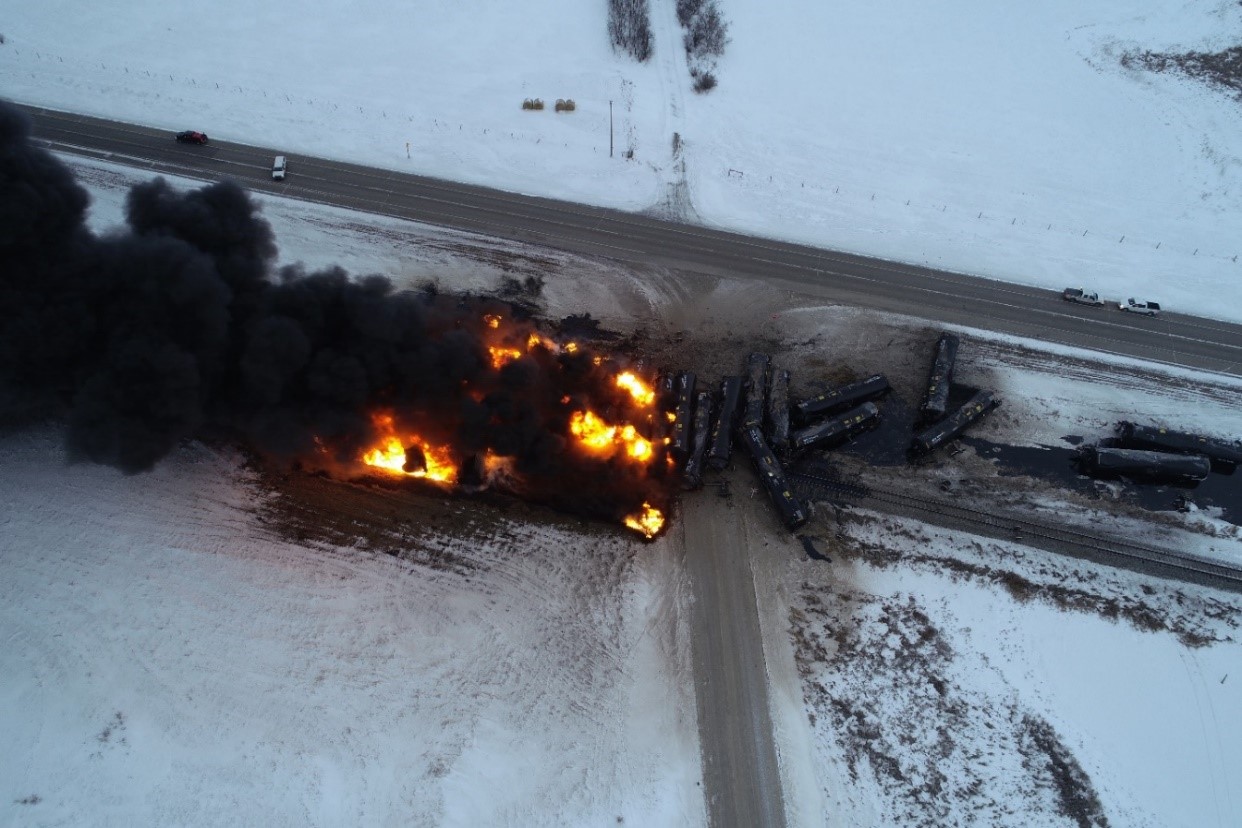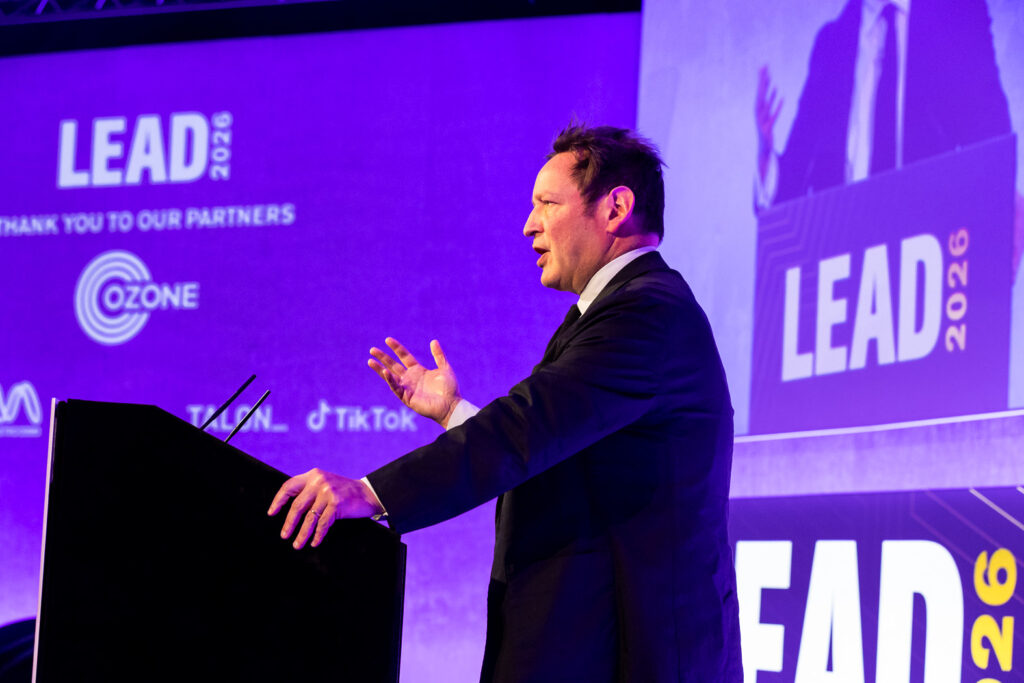On July 6, Reuters published an article on the potential for a resurgence of moving crude oil from the Bakken region of North Dakota across the country by rail, due to a judge’s decision to shut down the Dakota Access Pipeline over permit issues.
July 6 also was the seventh anniversary of the disaster in Lac-Mégantic, Quebec, when a train full of Bakken oil from North Dakota derailed and exploded — resulting in 47 fatalities and the destruction of much of downtown Lac-Mégantic.
And while the timing was just coincidence, it is a stark reminder of the dangers of moving Bakken crude (and Canadian crude) oil by rail and the risks that a resurgence of this industry poses to the 25 million people living along the tracks these oil trains traverse.
Who had the return of crude-by-rail on their 2020 oil bingo card?https://t.co/HxOP8U079h
— Jennifer Hiller (@Jennifer_Hiller) July 6, 2020
Seven Years Later and The Same Risks Remain
After the Lac-Mégantic disaster, regulators in Canada and the U.S. worked to put in place new safety regulations to prevent another such disaster from happening. However, as we have documented here on DeSmog and in my book Bomb Trains: How Industry Greed and Regulatory Failure Put the Public at Risk, the oil and rail industries have effectively blocked or forced the repeal of any meaningful safety regulations.
Regulations for modern electronically controlled pneumatic brakes were repealed by the Trump administration. State regulations to require the volatile Bakken oil to be stabilized to remove the natural gas liquids in the crude oil that make it so dangerous were overruled by the Trump administration.
There still are no regulations about rail track wear and replacement even though track failure is a leading cause of train derailments and is suspected of causing the two most recent oil train derailments that resulted in large spills and fires. There still are no regulations on the length of the trains, even though longer trains derail more often and train operators — the men and women driving the trains — say that longer trains are harder to operate.
And the new tank cars that were supposed to be safer have failed in every major oil and ethanol train derailment they have been involved in to date.
This lack of regulation combined with the active removal of regulations that could actually improve safety should come as no surprise with the current administration. The Department of Transportation (DOT) that oversees rail safety has stated that “DOT’s approach to achieving safety improvements begins with a focus on removing unnecessary barriers and issuing voluntary guidance, rather than regulations that could stifle innovation.”
As the U.S. is facing another potential wave of Bakken oil trains, the industry is essentially being allowed to volunteer to make any safety improvements. And regulations have also been relaxed due to the COVID-19 pandemic.
With the oil industry in financial crisis and the rail companies desperate for any additional carload volumes, cutting corners on safety is a likely outcome for an industry allowed to self-regulate.
And with the potential for a new wave of bomb trains rolling across America, industry lobbyists are already arguing that regulating the oil trains will not improve safety.
I will never forget Lac Megantic. I was sleeping and my phone started going off with texts from my friends in Europe & the US:
«Where are you?!? Are you okay? Please call me! »
I turned on the news and saw the devastating images. I was left horrified, shocked and heart broken pic.twitter.com/WVIpbSdkYn
— Marie (@FPOnTheDL) July 6, 2020
Canada’s Oil Trains a “Clear and Present Danger”
The opening of the Dakota Access Pipeline (which began operation in June 2017) did greatly reduce the amount of Bakken oil being moved by rail from the peak volumes of 2014 — although volumes had been decreasing already due to oil market economics. At the same time the amount of Canadian oil being moved by rail was rapidly increasing.
And, unsurprisingly, the frequency of Bakken train derailments decreased while Canadian train derailments increased. In December of 2019 a Canadian crude oil train derailed and caught fire near Guernsey, Saskatchewan. In February of this year a second crude oil train derailed and caught fire near Guernsey.
These accidents led an editor at Railway Age to call these Canadian oil trains a “clear and present danger” due to the failure of regulators to address the known risks of moving oil by rail.
The tank cars involved in both of those accidents were the new cars that were supposed to improve safety in derailments but just as in other accidents involving the new tank cars — the results speak for themselves — when the trains derail these new tank cars rupture and large amounts of oil spills. And often catches fire.
The cause of both recent derailments was likely track failure. An investigation by CBC noted that inspectors had reported track safety issues for years along the section of track where both derailments occurred and Ian Naish, who had previously worked as director of rail investigations for the Transportation Safety Board of Canada said the track was in “really bad shape” and that “Neither derailment was a surprise at all.”
The rail industry in Canada and the U.S. has successfully fought any attempts to regulate rail wear and replacement.
If there is a new Bakken oil train boom, no one should be surprised when those trains begin to derail and explode.
Train car explosion today in Rock Springs Wyoming pic.twitter.com/ON5KcI9eBs
— Yousef NH (@YousefNH2) June 14, 2020
Bakken Trains Will Come Back To The East Coast
The initial Bakken rail boom saw much of the oil being shipped to East Coast refineries. In recent years the volumes moving east by rail have greatly decreased because of the low cost of oil. It is cheaper for refineries in the east to buy oil from Africa that is shipped over water by tankers then to have it shipped by rail.
But if the pipeline is closed, all of that Bakken oil will have to go somewhere and the East Coast is a likely destination for a lot of it according to an article in S&P Global Platts. There also is the potential for a lot more Bakken to move to the Northwest Coast.
The Bakken region was producing large amounts of oil before the DAPL opened and most of that was moving by rail. All of that rail infrastructure is still there. Where the trains will take that oil is simply about economics, and it likely that means the oil will head east and west, like much of it did during the original Bakken oil boom.
Oil Train Disasters Are Corporate Crimes
Just days after the Lac-Megantic disaster, a columnist for The Guardian described the event as a “corporate crime.” Testimony in the trial that followed as well as the official accident report easily back up that statement. The accident can be directly traced to deregulation and corporate cost-cutting.
These rail incidents are becoming all too frequent . CP should not be hiding behind lax regulatory enforcement. Safety needs to be a value. Stories reek of organizational short-cutting and lack of preventative maintenance. Another Lac Megantic is just another incident away. https://t.co/STqXMFylrO
— Robert B. Stewart (@ItsRobStewart) July 6, 2020
And yet seven years later as communities along the railroad tracks across North America face another wave of these bomb trains, things have arguably gotten worse in that regard. The DOT says its policy is to remove regulations and let corporations volunteer to improve safety. Rail companies continue to use longer trains despite the risks while also arguing against two person crews that can improve safety. And the oil companies refuse to stabilize the dangerous Bakken crude oil to make it safe to transport.
Paul J. Roberti, the chief counsel for the Pipeline and Hazardous Materials Safety Administration — the regulatory agency that overruled Washington state’s attempt to regulate oil volatility for oil trains — was quite clear what the agency’s top priority was regarding regulation.
Roberti wrote: “Proponents of the law insist Washington State has a legitimate public interest to protect its citizens from oil train fires and explosions, but in the context of the transportation of crude oil by rail, a State cannot use safety as a pretext for inhibiting market growth or instituting a de facto ban on crude oil by rail within its borders.”
When regulators argue that safety isn’t a legitimate reason to regulate dangerous industries like oil by rail, it is quite reasonable to describe the inevitable accidents as corporate crime scenes. And with a potential new wave of Bakken oil trains hitting the rails, no one should be surprised when more of these crime scenes occur — or when the corporate criminals responsible are never held accountable.
Main image: Aerial view of accident site Credit: CP via Transportation Safety Board of Canada, CC BY–NC–ND 2.0
Subscribe to our newsletter
Stay up to date with DeSmog news and alerts






